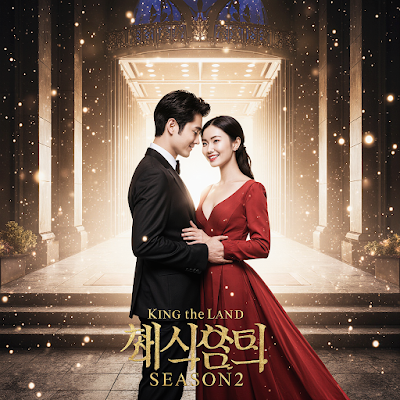Hey there, and welcome! 😊
So glad you joined—and thanks for sharing your thoughts so warmly. It’s totally relatable how a feel-good drama like King the Land can bring comfort when you're feeling low. You're not alone in that—many fans have said the same thing about its healing vibe and sweet, albeit sometimes over-the-top, love story.
Now, about Season 2:
As of now (mid-2025), there has been no official announcement from JTBC, the production team, or the cast confirming a second season of King the Land. Here's the situation in a nutshell:
🔍 What We Know:
The drama wrapped up with a happy ending, which often in K-dramas signals the end.
JTBC and most Korean networks tend to favor one-season story arcs, unless it’s a genre series like Kingdom or Penthouse.
Neither Lee Junho nor Yoona (Girls' Generation) has hinted at returning for another season—and both are pretty busy with individual schedules.
💭 Why Fans Are Still Hopeful:
The show was very popular, both domestically and internationally, especially on Netflix.
There's unresolved material, like:
Gu-Won’s parents’ background.
Mr. No's love story (you're not alone rooting for him!).
King Hotel's future and the married life journey of our leads.
🧠 The Realistic Outlook:
Unfortunately, unless there’s a surge of demand or a creative decision from the writers and network, a second season is unlikely. However, Korean dramas have occasionally surprised us with special episodes, spin-offs, or webtoons that explore the “after happily ever after” angle.
💡 Suggestion:
And if you're feeling down, don’t hesitate to chat with someone—whether it’s a friend, here in the community, or a pro. Sometimes we all need a bit of support, and you're already taking a great step by sharing ❤️
If you'd like, I can help you keep tabs on news for S2 or write a little "fan epilogue" to imagine what might happen next with the characters. Would you like that?









